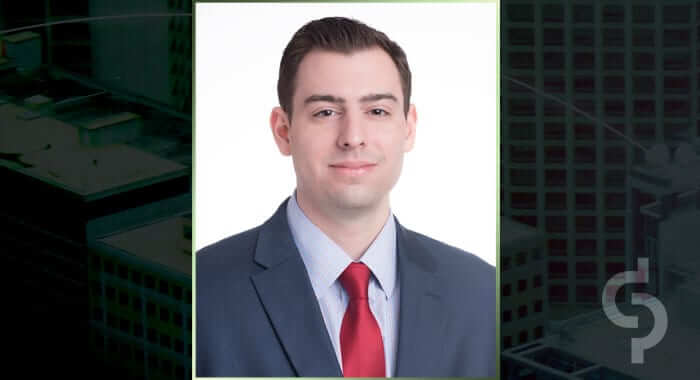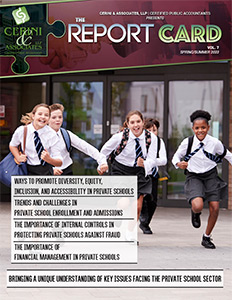Fraud can have devastating consequences for private schools, both financially and in terms of reputation. That’s why it’s important for schools to implement strong internal controls to prevent fraud from occurring in the first place.
What are internal controls? Essentially, they are procedures and policies designed to safeguard a school’s assets, ensure the accuracy of its financial information and reporting, and deter fraudulent activity. Examples of internal controls include:
1.) Segregation of duties:
Separating tasks between different individuals to prevent any one person from having too much control over a process. For example, the individual who reconciles bank statements should not be the same one who processes payments.
2.) Authorization and approval processes:
Any significant transaction, such as a large purchase or expense, should require approval from multiple parties, including someone with authority to sign off on the transaction.
3.) Physical safeguards:
Physical measures can be put in place to protect assets from theft or damage. This might include locked storage areas for sensitive documents, security cameras, or even access control systems.
4.) Record-keeping:
Detailed and accurate record-keeping is critical for detecting fraud. Schools should maintain clear and complete records of all financial transactions, including receipts and invoices.
5.) Compensating controls:
A strong system of internal controls needs to have proper checks and balances in place. For instance, having the CFO review the payroll to ensure all employees are correctly included in payroll and their salaries are appropriate, provides an additional control in place to prevent instances of fictitious employees, inappropriate pay, or other inconsistencies in payroll records. Compensating controls will not prevent situations from happening, but they will detect them in a timely basis and help catch errors and deter fraudulent activity.
Implementing proper internal controls can be a significant undertaking, but the benefits of doing so can be substantial. By reducing the risk of fraud, private schools can protect their financial resources, maintain the trust of their stakeholders, and ensure that they are able to continue providing high-quality education to their students.
In addition to implementing internal controls, schools should also regularly review and update their fraud prevention policies and procedures to ensure that they remain effective in an ever-changing environment. This can involve conducting risk assessments, monitoring for unusual or suspicious activity, and providing ongoing training to staff on fraud prevention best practices.
Internal controls are essential for protecting private schools against fraud. By implementing proper controls, schools can reduce their risk of financial loss and maintain their reputation as trustworthy institutions. It’s an investment in the long-term success of the school, and one that is well worth making.

James Laino, CPA
Senior Accountant
James is a member of Cerini & Associates’ senior audit staff where he works with our education and school district clients. James conducts claims audits at various school districts on Long Island.






